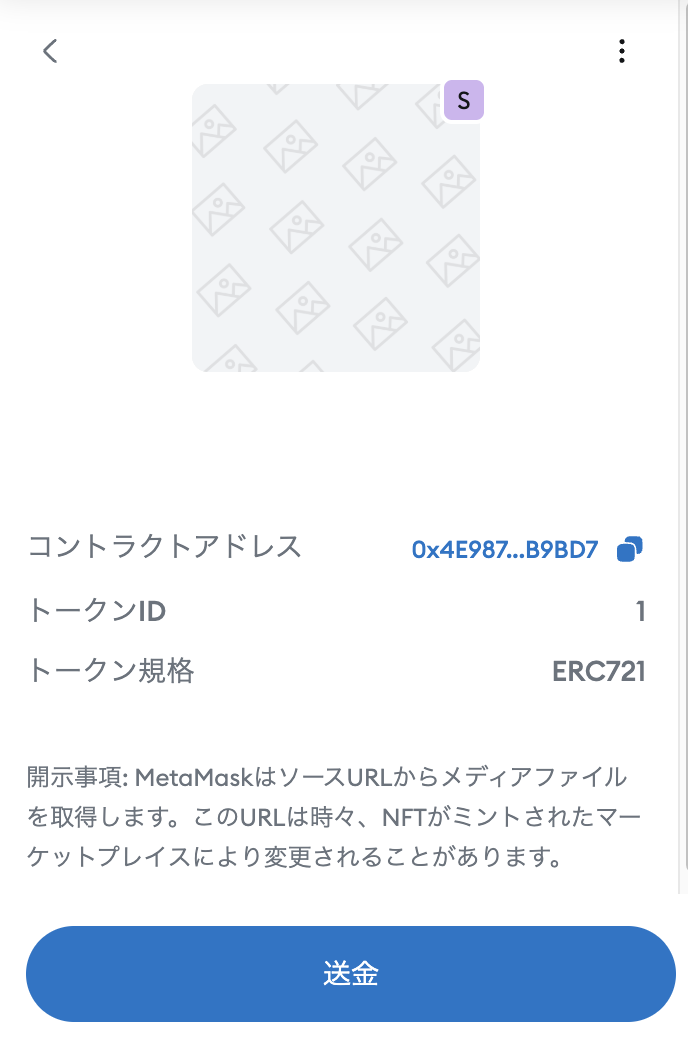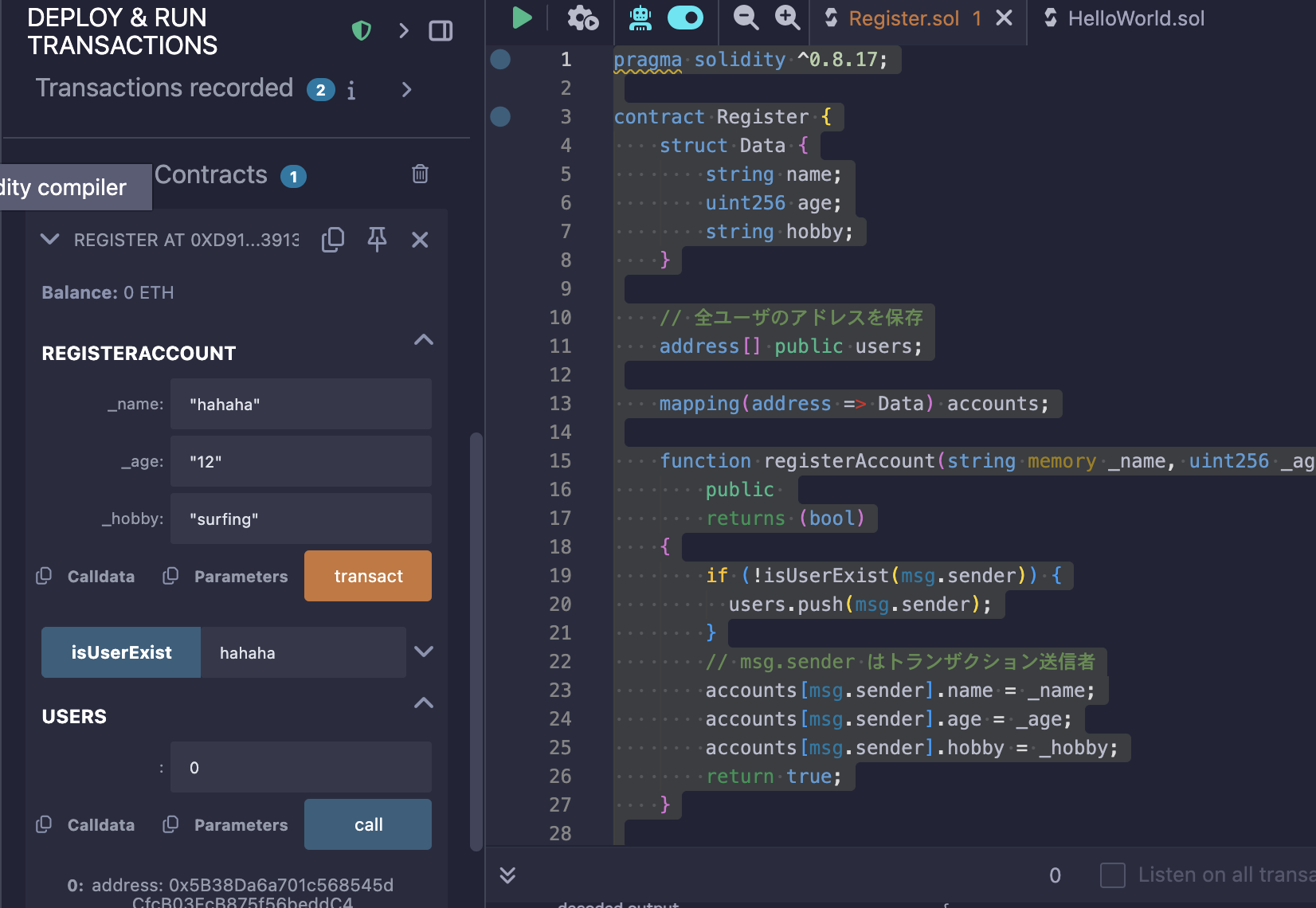# Solidityのオブジェクト
## msg オブジェクト
– msg.sender: address
– msg.value: eth value
– msg.gas
– msg.data
## txオブジェクト
– tx.gasprice
– tx.origin: transaction address
## blockオブジェクト
– block.coinbase
– block.difficulty
– block.gaslimit
– block.number
– block.timestamp
## addressオブジェクト
– address.balance
– address.transfer
– address.send
## 関数
addmod, mulmod, keccak256, sha3, sha256, erecover, selfdestruct, this
## その他
– external: コントラクトの外部
– internal: コントラクトの内部
– view: データの閲覧のみ
– pure: 読み取りも行わない
– event: ブロックチェーン上で何かが生じた時、web上やアプリに伝えることができる仕組み
## ECR20
pragma solidity ^0.8.17;
interface tokenRecipient { function receiveApproval(address _from, uint256 _value, address _token, bytes calldata _extraData) external; }
contract TokenERC20 {
string public name;
string public symbol;
uint8 public decimals = 18;
uint256 public totalSupply;
mapping (address => uint256) public balanceOf;
mapping (address => mapping (address => uint256)) public allowance;
event Transfer(address indexed from, address indexed to, uint256 value);
event Approval(address indexed _owner, address indexed _sender, uint256 _value);
event Burn(address indexed from, uint256 value);
constructor(
uint256 initialSupply,
string memory tokenName,
string memory tokenSymbol
) public {
totalSupply = initialSupply * 10 ** uint256(decimals);
balanceOf[msg.sender] = totalSupply;
name = tokenName;
symbol = tokenSymbol;
}
function _transfer(address _from, address _to, uint _value) internal {
require(_to != address(0));
require(balanceOf[_from] = _value);
require(balanceOf[_to] + _value = balanceOf[_to]);
uint previousBalances = balanceOf[_from] + balanceOf[_to];
balanceOf[_from] -= _value;
balanceOf[_to] += _value;
emit Transfer(_from, _to, _value);
assert(balanceOf[_from] + balanceOf[_to] == previousBalances);
}
function transfer(address _to, uint256 _value) public returns (bool success) {
_transfer(msg.sender, _to, _value);
return true;
}
function approve(address _spender, uint256 _value) public
returns (bool success) {
allowance[msg.sender][_spender] = _value;
emit Approval(msg.sender, _spender, _value);
return true;
}
function approveAndCall(address _spender, uint256 _value, bytes memory _extraData)
public
returns (bool success) {
tokenRecipient spender = tokenRecipient(_spender);
if (approve(_spender, _value)) {
spender.receiveApproval(msg.sender, _value, address(this), _extraData);
return true;
}
}
function burn(uint256 _value) public returns (bool success) {
require(balanceOf[msg.sender] = _value);
balanceOf[msg.sender] -= _value;
totalSupply -= _value;
emit Burn(msg.sender, _value);
return true;
}
function burnFrom(address _from, uint256 _value) public returns (bool success) {
require(balanceOf[_from] = _value);
require(_value = allowance[_from][msg.sender]);
balanceOf[_from] -= _value;
allowance[_from][msg.sender] -= _value;
totalSupply -= _value;
emit Burn(_from, _value);
return true;
}
}
from solidity:
TypeError: No matching declaration found after argument-dependent lookup.
–> ecr20.sol:31:8:
|
ん? 何故だ…


